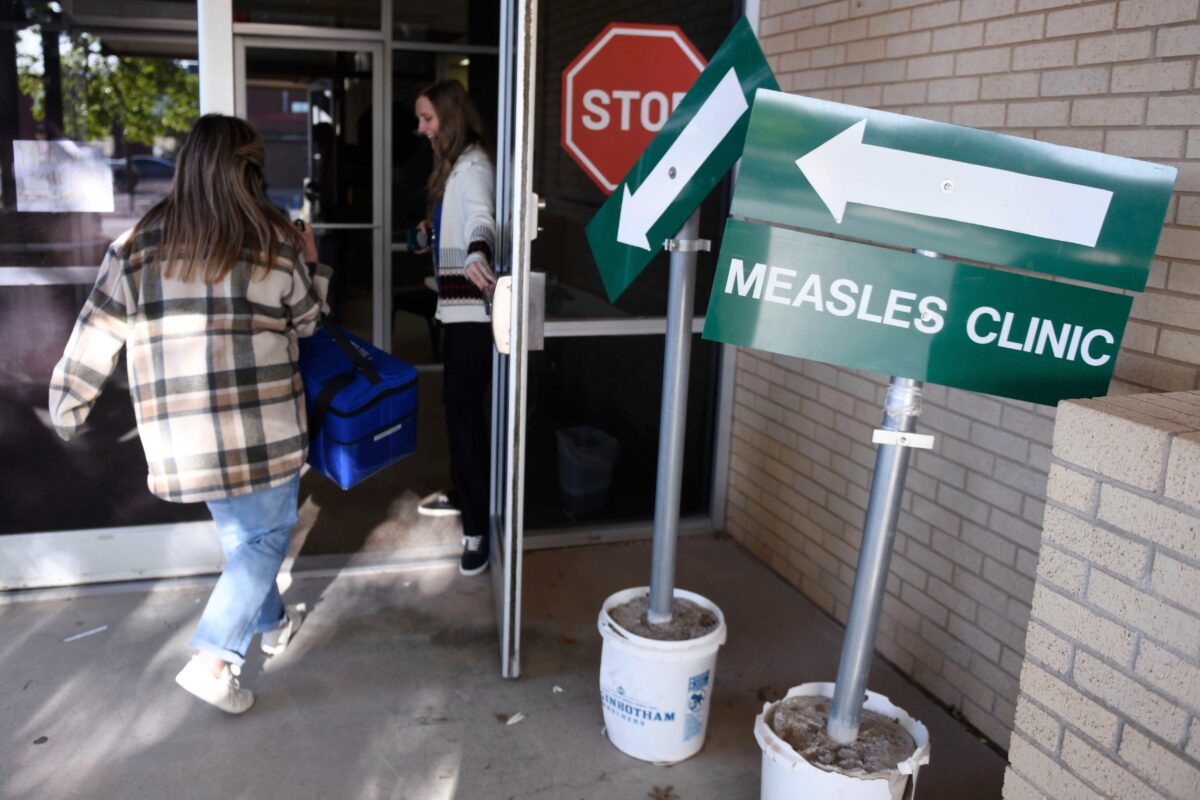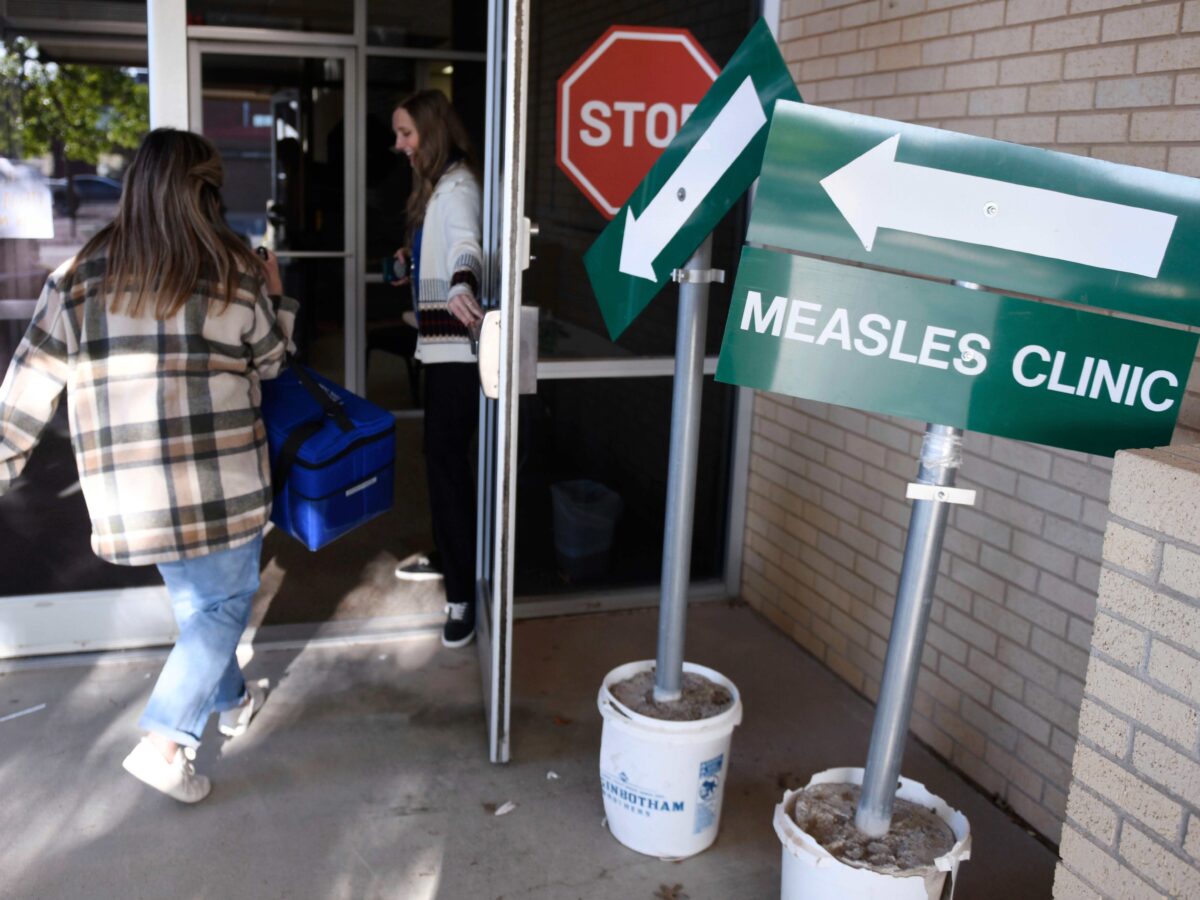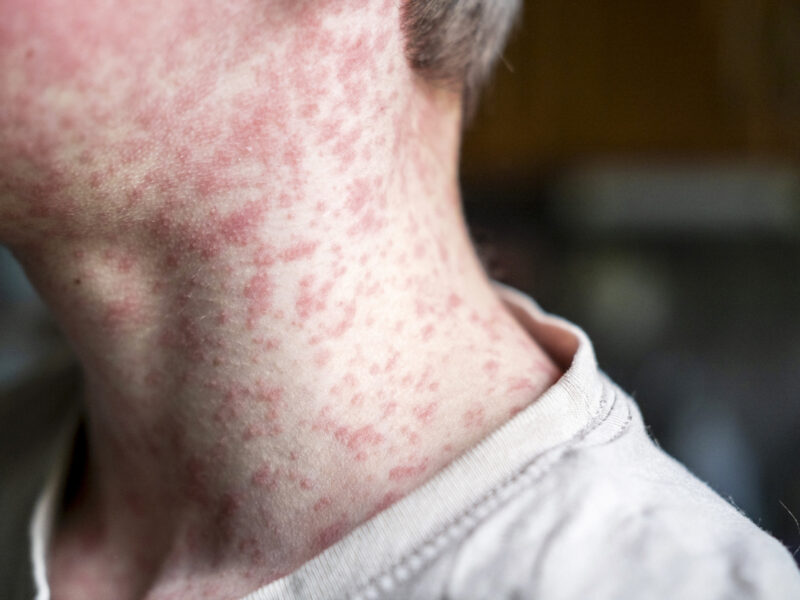Overview:
-The number of U.S. measles cases this year is the highest since 1992.
-The vaccine-preventable disease was declared eliminated in 2000.
-Metro Detroit falls short of 95% community vaccination rate that CDC says is needed to prevent outbreaks.
Michigan has logged 18 measles cases so far this year as of Wednesday, eight of which occurred due to outbreaks, according to the Michigan Department of Health & Human Services.
Out of the 18 confirmed measles cases, 17 patients were unvaccinated or had unknown vaccination status, the state health agency’s data shows. This means the patient has no record of measles vaccination or received a vaccine less than two weeks before to measles exposure or symptom onset.
One confirmed Michigan measles patient this year had received two doses of the measles, mumps, and rubella vaccine.
MDHHS defines a measles outbreak as three or more related cases of measles.
A total of 1,288 confirmed measles cases were reported by 39 jurisdictions across the U.S. as of Tuesday, according to the Centers for Disease Control and Prevention — the most since 1992.
The CDC reports three confirmed deaths from measles so far this year.
The national case count this year has surpassed all of 2019, when there were 1,274 cases — and the country almost lost its status of having eliminated the vaccine-preventable illness. That could occur this year if the virus spreads nonstop for 12 months.
Measles was declared eliminated in the United States in 2000. Isolated outbreaks have occurred since then.
Measles vaccination rates leaves metro Detroit vulnerable
Vaccination rates for children 19-35 months as of March 31 were as follows, according to MDHHS data:
• Wayne County excluding Detroit: 80%
• Detroit: 74.4%
• Oakland County: 81.7%
• Macomb County: 78.8%
Outbreaks are more likely to occur when community vaccination rates fall below 95%, according to the CDC.
United States Secretary of Health and Human Services Robert F. Kennedy Jr.’s inconsistent and unclear message on the measles vaccines has also made the outbreaks difficult to contain, experts say.
He has occasionally endorsed the measles, mumps and rubella vaccine as “effective,” but also continues to raise safety concerns about the shots in other statements.
The measles virus lives in the nose and throat mucus of an infected person, according to MDHHS. It spreads through coughing or sneezing, and people are infected by breathing contaminated air or touching infected surfaces and then their eyes, mouth, or nose.
The CDC says measles symptoms appear seven to 14 days after contact, and common symptoms include a high fever, cough, runny nose, red and watery eyes, and a rash.
U.S. measles cases often start with unvaccinated Americans infected abroad, who then spread it to others who are not protected against measles, which sometimes leads to outbreaks, according to MDHHS.
Of the 18 confirmed measles cases in Michigan, seven cases reported international travel, one case reported domestic travel, and 10 cases reported no travel or unknown.
MORE MEASLES COVERAGE
Measles makes a comeback: Is US on the brink of new epidemic?
As measles cases surge globally, the U.S. faces a significant rise with 935 reported cases by May 2, raising concerns about the disease becoming endemic again if vaccination rates do not improve.
What Detroiters need to know about measles vaccinations
Michigan’s first measles case of 2025 is reported in Oakland County. Planet Detroit answers common questions about measles vaccination guidelines and where to find a MMR vaccine in Macomb, Oakland, and Wayne counties.
Why Michigan is vulnerable to measles outbreaks: ‘Public health has been a victim of our own success’
A surge in measles cases in Texas and other states is raising concerns in Michigan where declining vaccination rates could lead to local outbreaks.
Two MMR doses 97% effective at preventing measles
The best way to protect against measles is to get the MRR vaccine, according to the CDC. Two doses of MMR vaccine are about 97% effective at preventing measles and one dose is about 93% effective.
The CDC recommends that people with conditions such as severe allergies, a weakened immune system, recent blood transfusions, or pregnancy consult a health care provider before getting the MMR vaccine.
The MDHHS suggests protecting yourself, your family, and your community with the MMR vaccine, especially before traveling internationally.
The Associated Press contributed to this report.





